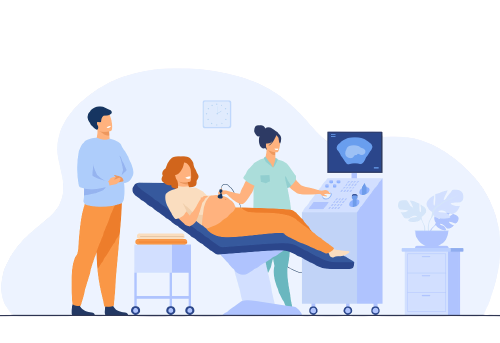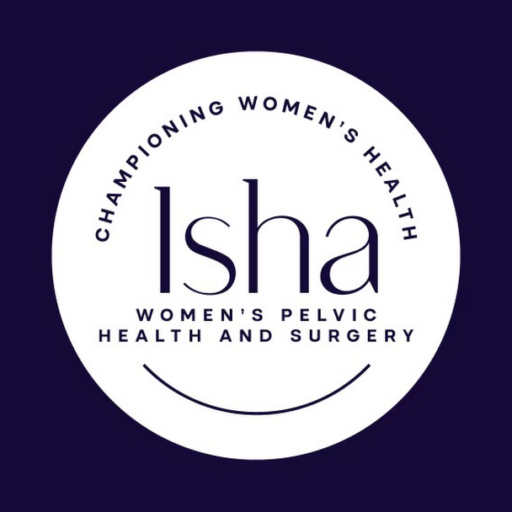ISHA CLINIC
Pregnancy Care, NST

Congratulations, you’re pregnant!
Pregnancy is an exciting time, but it can also be stressful. Knowing that you are doing all you can to stay healthy during pregnancy and give your baby a healthy start in life will help you to have peace of mind.
What Are Steps You Can Take Toward a Healthy Pregnancy?
Folic Acid: Folic acid is a B vitamin that can help prevent major birth defects. Take a vitamin with 400 micrograms (mcg) of folic acid every day, before and during pregnancy.
Smoking: The best time to quit smoking is before you get pregnant, but quitting at any time during pregnancy can help your baby get a better start on life. Learn more about the dangers of smoking and find help to quit.
Alcohol: A baby can be exposed to the same level of alcohol as the mother during pregnancy. There is no known safe amount of alcohol use during pregnancy.
Vaccinations: Did you know a baby gets disease immunity (protection) from mom during pregnancy? This immunity can protect baby from some diseases during the first few months of life, but immunity decreases over time.
Infections: You won’t always know if you have an infection sometimes you won’t even feel sick. Learn how to help prevent infections that could harm your developing baby.
How Do Genetics and Family History Affect Pregnancy?
Genetics: Understanding genetic factors and genetic disorders is important for learning more about preventing birth defects, developmental disabilities, and other unique conditions in children.
Family History: Family members share their genes and their environment, lifestyles, and habits. A family history can help identify possible disease risks for you and your baby.
Genetic Counselor: Your doctor might suggest that you see a genetic counselor if you have a family history of a genetic condition or have had several miscarriages or infant deaths.
Your body in pregnancy
Your body will go through some big changes in pregnancy. Your baby bump is likely to pop out any time from around 14 weeks. By 19 weeks, many women look pregnant. This happens earlier with second and subsequent babies.
You might experience other changes like:
Bigger or tender breasts,
Small skin tags underneath your breasts,
Thicker hair and faster growing nails,
a pregnancy glow or more pimples than before,
Chloasma: A brown patches on your face or neck,
Linea Nigra: A brown line that shows up on the skin of your belly stretch marks,
swollen feet,
If you have a mole or lesion that changes colour or shape, itís important to ask your doctor about it.
Morning sickness and other pregnancy health problems
In the first 6-12 weeks of being pregnant, your body makes a lot of extra hormones. These hormones can cause nausea and vomiting, often called morning sickness. Morning sickness is usually at its worst early in the day, but it can happen at any point during the day or night. It usually stops after the first 3-4 months. For some women, it goes on much longer than this.
If you get morning sickness, it can help to eat small amounts often. Carbohydrate-rich snacks like crackers, toast, cereal or fruit are ideal.
Being pregnant can bring some other uncomfortable physical symptoms ñ for example, constipation, headaches and the need to urinate more often. Pregnancy health problems are usually mild, but itís always a good idea to talk about them with your doctor or midwife.
There are some pregnancy health problems, like pre-eclampsia, that need more urgent medical attention.
How often should I see my doctor during pregnancy?
Your doctor will give you a schedule of all the doctor’s visits you should have while pregnant. Most experts suggest you see your doctor:
About once each month for weeks 4 through 28 Twice a month for weeks 28 through 36 Weekly for weeks 36 to birth If you are older than 35 or your pregnancy is high risk, you’ll probably see your doctor more often.
What happens during prenatal visits?
During the first prenatal visit, you can expect your doctor to: Ask about your health history including diseases, operations, or prior pregnancies.
Ask about your family’s health history, Do a complete physical exam, including a pelvic exam and Pap test Take your blood and urine for lab work Check your blood pressure, height, and weight Calculate your due date Answer your questions.
At the first visit, you should ask questions and discuss any issues related to your pregnancy. Find out all you can about how to stay healthy. Later prenatal visits will probably be shorter. Your doctor will check on your health and make sure the baby is growing as expected. Most prenatal visits will include:
– Checking your blood pressure
– Measuring your weight gain
– Measuring your abdomen to check your baby’s growth (once you begin to show) Checking the baby’s heart rate
While you’re pregnant, you also will have some routine tests. Some tests are suggested for all women, such as blood work to check for anemia, your blood type, HIV, and other factors. Other tests might be offered based on your age, personal or family health history, your ethnic background, or the results of routine tests you have had.

Online Paid Consultation
1. Primary Treatments or Education
2. Emergency Consultation.
3. Review Progress.
- 15 Mins

In Person Appointment
All Gynecology & Obsterics related
diagnosis at Clinic.
- 20 Mins
